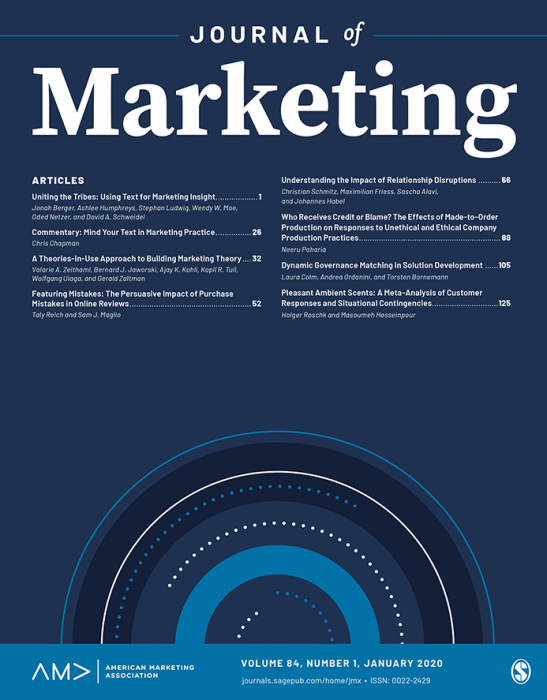EXPRESS: Beyond Opt-Out: How Presumed-Consent Language Shapes Persuasion
IF 10.4
1区 管理学
Q1 BUSINESS
引用次数: 0
Abstract
When using opt-out (vs. opt-in) policies, choice architects presume that people consent, rather than explicitly asking them to state their consent. While opt-out policies often increase compliance, they are also associated with managerial issues such as ethical considerations, legal regulations, limited public support, and increased no-show rates. This research demonstrates that choice architects can also establish presumed-consent through the language they use, holding the opt-in policy constant. Seven studies in various health domains indicate that presumed-consent language (e.g., “a vaccine was arranged for you”) rather than explicit-consent language (e.g., “you can choose to get a vaccine”) increases persuasion (i.e., behavioral intentions, actual behaviors). This effect occurs through perceived endorsement: Decision makers infer through the presumed-consent language that the desired health behavior (e.g., vaccination) is the recommended course of action. Furthermore, this research examines the proposed endorsement process under various conditions. When product tangibility is low (e.g., a flu shot), the effectiveness of presumed-consent language stems primarily from perceived endorsement rather than psychological ownership or perceived ease. In contrast, when product tangibility is high (e.g., a sunscreen lotion), the effect stems primarily from psychological ownership rather than perceived endorsement or perceived ease.超越选择退出:假设同意语言如何塑造说服
当使用选择退出(与选择加入)策略时,选择架构师假设人们同意,而不是明确地要求他们声明同意。虽然选择退出政策通常会增加遵从性,但它们也与管理问题有关,例如道德考虑、法律法规、有限的公众支持和增加的缺勤率。这项研究表明,选择架构师也可以通过他们使用的语言建立假定同意,保持选择加入策略不变。在各个卫生领域进行的七项研究表明,假定同意的语言(例如,“疫苗已经为你安排好了”)而不是明确同意的语言(例如,“你可以选择接种疫苗”)增加了说服力(即,行为意图,实际行为)。这种效应通过感知认可发生:决策者通过假定同意语言推断期望的健康行为(例如,接种疫苗)是推荐的行动方案。此外,本研究考察了在不同条件下的建议背书过程。当产品的有形性较低时(例如,流感疫苗),假定同意语言的有效性主要源于感知到的认可,而不是心理上的所有权或感知到的轻松。相反,当产品的有形性很高时(例如,防晒霜),效果主要来自心理上的所有权,而不是感知到的认可或感知到的轻松。
本文章由计算机程序翻译,如有差异,请以英文原文为准。
求助全文
约1分钟内获得全文
求助全文
来源期刊

Journal of Marketing
BUSINESS-
CiteScore
24.10
自引率
5.40%
发文量
49
期刊介绍:
Founded in 1936,the Journal of Marketing (JM) serves as a premier outlet for substantive research in marketing. JM is dedicated to developing and disseminating knowledge about real-world marketing questions, catering to scholars, educators, managers, policy makers, consumers, and other global societal stakeholders. Over the years,JM has played a crucial role in shaping the content and boundaries of the marketing discipline.
 求助内容:
求助内容: 应助结果提醒方式:
应助结果提醒方式:


